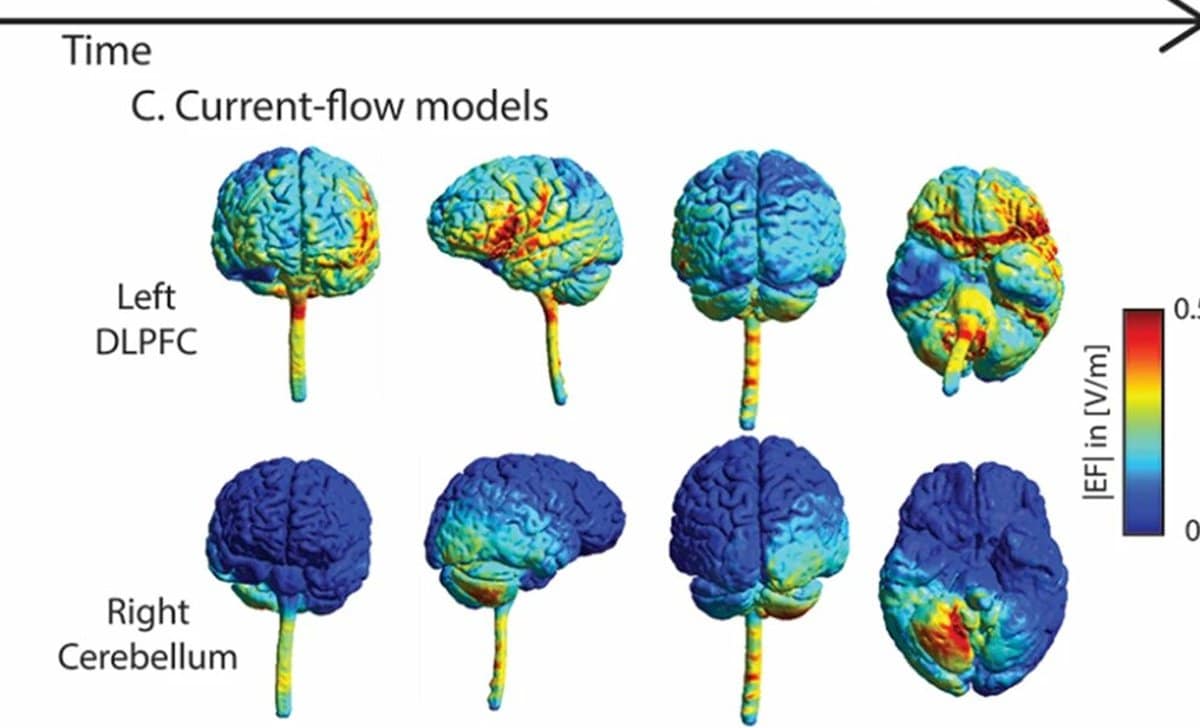Summary: Transcranial direct current stimulation (tDCS) of the right cerebellum improved episodic memory in elderly people, a new study reports. The findings open the door to developing new, non-invasive therapies to treat age-related memory and cognitive problems.
Source: BIAL Foundation
A recent study demonstrated that non-invasive stimulation of the right cerebellum led to improvements in episodic memory performance in healthy elderly individuals, at the end of a 12-day neurostimulation program, and also at the point of a 4-month follow-up.
The steady increase in average life expectancy poses significant challenges to individuals, families, and societies across multiple dimensions.
Estimating that by 2050 one in every six individuals will be over the age of 65, the study of aging and its association with cognitive decline, neurodegenerative diseases and overall frailty is becoming increasingly important.
Therefore, it has been an important goals of neurosciences research to understand the relationship between the aging brain and episodic memory deficits and to develop interventions to mitigate the age-related decline in our ability to remember personal past events (episodic memory).
The research team led by Jorge Almeida (Faculty of Psychology and Educational Sciences, University of Coimbra) published the article “The cerebellum is causally involved in episodic memory under aging,” in GeroScience, which demonstrated that the cerebellum is one of the neuronal regions causally involved in episodic memory during aging.
If in the past the cerebellum was considered exclusively as the basis of motor coordination, controlling, for example, our balance and posture, in recent decades studies have proven that this brain region, located at the back of the brain, also decisively influences cognitive and emotional processes.

In this study, the team of researchers from universities of Portugal, Brazil, the U.S., and Iran delivered a 12-day neurostimulation program to the right cerebellum of 56 healthy elderly individuals aged 60 years old or over, and registered improvements in their episodic memory performance that lasted at least four months beyond the stimulation period.
The results demonstrate the causal relevance of the cerebellum in processes associated with long-term episodic memory, highlighting its role in regulating and maintaining cognitive processing.
According to Jorge Almeida, this work “opens up the possibility of developing non-pharmacological interventions to ameliorate typical age-related cognitive frailty that induce long-lasting improvements that, at least, outlast the four months tested herein.”
About this aging, neurotech, and memory research news
Author: Press Office
Source; BIAL Foundation
Contact: Press Office – BIAL Foundation
Image: The image is credited to the researchers/GeroScience
Original Research: Open access.
“The cerebellum is causally involved in episodic memory under aging” by Jorge Almeida et al. GeroScience
Abstract
The cerebellum is causally involved in episodic memory under aging
Episodic memory decline is a major signature of both normal and pathological aging. Many neural regions have been implicated in the processes subserving both episodic memory and typical aging decline. Here, we demonstrate that the cerebellum is causally involved episodic memory under aging.
We show that a 12-day neurostimulation program delivered to the right cerebellum led to improvements in episodic memory performance under healthy aging that long outlast the stimulation period — healthy elderly individuals show episodic memory improvement both immediately after the intervention program and in a 4-month follow-up.
These results demonstrate the causal relevance of the cerebellum in processes associated with long-term episodic memory, potentially highlighting its role in regulating and maintaining cognitive processing.
Moreover, they point to the importance of non-pharmacological interventions that prevent or diminish cognitive decline in healthy aging.






